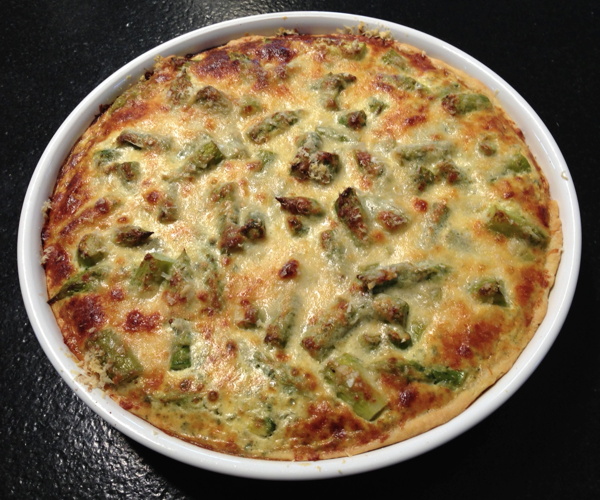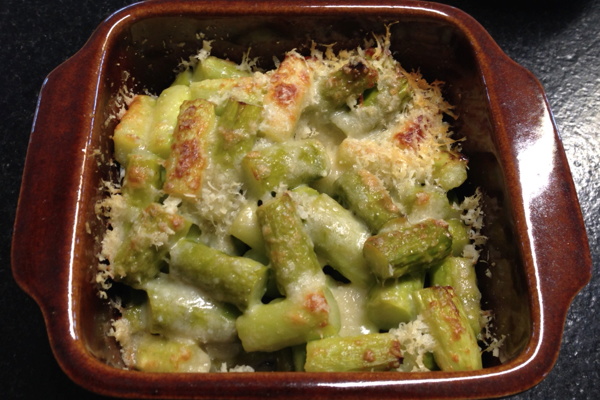- These 7 Gorgeous Utah National Monuments Should Be On Your Bucket List
- 8 Reasons To Drop Everything And Visit This One Amazing State Park In Utah (Escalante Petrified Forest State Park)
- 12 Incredible Hikes Under 5 Miles Everyone In Utah Should Take
- 23 Sites in Utah Will Remind You How Stunning America Really Is
- These 8 Unbelievable Ruins in Utah Will Transport You to the Past
- These 13 Bizarre Natural Phenomena in Utah Will Astound You
Monthly Archives: May 2016
Traveling to Arizona
- Everyone Should Explore These 12 Stunning Places In Arizona At Least Once
- 7 Wonders Of The World That Are Actually Right Here In Arizona
- 13 Historical Landmarks You Absolutely Must Visit In Arizona
- 12 Incredible Hikes Under 5 Miles Everyone In Arizona Should Take
- 12 Fascinating Things You Probably Didn’t Know About The Grand Canyon In Arizona
- 16 Reasons Why My Heart Will Always Be In Arizona
Chemistry in the Kitchen
Serious Eats: How to Make Rich, Flavorful Caramel Without Melting Sugar by Stella Parks.
“Melting is a phase change that has no impact on chemical composition, like the transition from ice to water. […]
Thermal decomposition, on the other hand, is a chemical reaction that breaks down molecular bonds to produce new substances. […]
In fact, caramel is so unlike sucrose, C12H22O11, that its nature can’t be expressed by a single chemical formula. Instead, it’s a mixture of caramelan (C15H18O9), caramelane (C12H9O9), caramelen (C36H48O24), caramelene (C36H25O25), caramelin (C24H26O13), and over a thousand other compounds ‘whose names,’ one scholar lamented in 1894, ‘science seems to have invented in a fit of despair.'”
(Finally there’s a reason to learn organic chemistry. ;-) )
Harold McGee (of “On Food and Cooking” fame): Caramelization: new science, new possibilities.
“How does heat turn sugar into caramel? Heat is a kind of energy that makes atoms and molecules move faster. […]
That’s what I’ve thought for many years, along with most cooks and confectioners and carbohydrate chemists: heat melts sugar, and then begins to break it apart and create the delicious mixture we call caramel.
And we’ve all been wrong.”
Link via MetaFilter.
I think I will need to try to use caramelized sugar in shortbread, which I love. By the way, the secret to shortbread with that great crumbly texture is to substitute one of the three parts of flour with rice flour:
Shortbread:
Ingredients:
375g flour: 250g wheat flour, 125g rice flour
250g butter
125g sugar
vanilla aroma
pinch of salt (flaky sea salt works best)
Mix everything into a dough, don’t knead too much. Spread onto a baking sheet (23cm x 30cm) lined with baking paper and mark rectangles, pierce each rectangle twice with a fork. Bake for 50 minutes at 150°C (300°F), then cut into rectangles while still hot. The shortbread should have a little bit of color, but not too much.
Recipe found at German cooking/baking weblog Chili & Ciabatta and translated to English. See also here.
Spargelzeit
Noch eine Spargeltarte, spontan zusammengebaut aus diversen Rezepten und dem Inhalt des Gefrierschranks plus frischem Spargel (und Eiern):
Spargeltarte mit Shrimps
Teig:
250g Mehl
80ml Speiseöl
1 Ei
1/2 Teelöffel Salz
2 Esslöffel Wasser
Alle Zutaten zu einem glatten Teig verkneten und 1/2 Stunde ruhen lassen.
Belag:
1kg grüner Spargel
1 Handvoll Shrimps (TK: auftauen, abtropfen lassen)
Den Spargel putzen und in mundgerechte Stücke schneiden. Spargelstücke in einer Pfanne anbraten, bis sie anfangen zu bräunen. (Spargelspitzen dabei nicht mit braten.) Shrimps ebenfalls kurz anbraten, bis sie Farbe annehmen.
Guss:
200g saure Sahne (oder Schmand oder Crème fraîche)
100g Sahne
Salz, Pfeffer, Kräuter
2 Eier
50g Parmesan, fein gerieben
Alle Zutaten gründlich verrühren.
Eine Tarteform (Durchmesser 30cm) mit dem Teig auskleiden, Spargel und Shrimps gleichmäßig drauf verteilen und mit dem Guss übergießen. Etwa eine halbe Stunde backen (Umluft: ca. 170°C).
Bei mir reichten die Zutaten, um zusätzlich eine quadratische Auflaufform von 10cm Kantenlänge zu füllen. Statt einer Tarteform kann man daher sicher auch eine Springform benutzen, in der Teig und Füllung dann etwas höher stehen.
Guten Appetit!


Spargelzeit
Und noch ein paar Links zu Spargelrezepten, diesmal bei Schöner Tag noch von Juliane aus der Nähe von Karlsruhe:
- Tarte mit grünem Spargel und Parmesan
- Tagliatelle mit grünem Spargel und Speck in Orangensahne
- Grüner Spargel-Risotto mit Bärlauch
- Rindergeschnetzeltes mit Spargel und Walnüssen
- Gebratener grüner Spargel mit Balsamico-Erdbeeren
- Salat mit geröstetem grünen Spargel, Zucchini, weißen Bohnen und Basilikum-Dressing
- Schnelle Spargeltarte mit Oliven und Chili-Schmand.
Von diesen Rezepten habe ich noch keines ausprobiert, aber das wird sich in den nächsten Tagen ändern!
